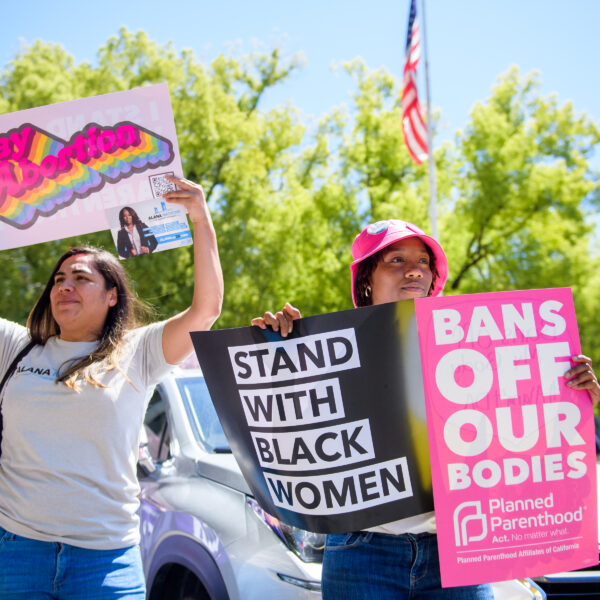Measure would add the right to abortion directly into the California State Constitution
SACRAMENTO – Several of the nation’s preeminent legal scholars with expertise in constitutional and reproductive law are speaking out to clarify exactly what Proposition 1 does and what it means for existing abortion access laws.
“California abortion rights only exist now because of court decisions about privacy,” says David A. Carrillo, executive director of Berkeley Law’s California Constitution Center. “Proposition 1 will prevent a California version of Dobbs, where a court interpreted away privacy-based abortion rights, by adding a specific abortion right to the state constitution.”
“The U.S. Supreme Court’s recent decision overturned earlier Supreme Court cases recognizing that the federal constitution protects the right to abortion,” said Michele Goodwin, Chancellor’s Professor at the University of California, Irvine and founding director of the Center for Biotechnology and Global Health Policy. “The decision now means that states can ban abortions completely in their states and criminalize clinicians who provide abortions, patients that obtain abortions, or people who help people access abortions, as we’re already seeing in states across the country. Proposition 1 will ensure that access to abortion is protected by adding the right directly into the California State Constitution so that individuals and providers can continue making these medical decisions together in California.
“Constitutions are written in broad terms. Their purpose is to articulate general principles and identify basic rights, of the sort that Prop 1 protects,” said Cary Franklin, McDonald/Wright Chair of Law at UCLA and Faculty Director of UCLA’s Center on Reproductive Health, Law, and Policy. “Constitutions are designed to provide the skeletal outline of a legal system, enabling legislatures to fill in the details. With Prop 1, the California State Legislature has the capacity to be more specific regarding abortion regulation if it chooses.”
“Proposition 1 tracks the language that has already been interpreted by the California Supreme Court in a way that absolutely allows the state to adopt reasonable regulations that impact abortion,” said Brietta Clark, Professor of Law, LMU Loyola Law School. “The measure is therefore in line with existing constitutional protections.”
Proposition 1 will explicitly add the right to an abortion to the California State Constitution. The measure is consistent with existing state rights to privacy and equal protection and would ensure that regardless of who or what party controls the government or the courts in the future, a person’s right to an abortion is protected in California.
About the experts:
David Carrillo
David A. Carrillo received his doctorate from Berkeley Law before joining the faculty as a lecturer in residence and the founding executive director of the California Constitution Center in 2012. The center is devoted to developing scholarship concerning the California constitution and the California Supreme Court. Dr. Carrillo coauthored a casebook on California constitutional law, teaches courses on the California constitution and the California Supreme Court, publishes articles on those subjects
Michele Goodwin
Michele Bratcher Goodwin is a Chancellor’s Professor at the University of California, Irvine and founding director of the Center for Biotechnology and Global Health Policy. She is the recipient of the 2020-21 Distinguished Senior Faculty Award for Research, the highest honor bestowed by the University of California. She is also the first law professor at the University of California, Irvine to receive this award. She is an elected member of the American Law Institute as well as an elected Fellow of the American Bar Foundation and the Hastings Center (the organization central to the founding of bioethics)
Carly Franklin
Cary Franklin is a Professor of Law at UCLA School of Law, where she writes and teaches in the areas of constitutional law, antidiscrimination law, and legal history. Her work focuses on the historical development of conceptions of equality in American law and how this history influences the shape of contemporary legal protections in the contexts of sex, sexual orientation, gender identity, and race. She is currently the Faculty Director of the Williams Institute, a research institute at UCLA focused on sexual orientation and gender identity law and public policy, and the Faculty Director of the Center on Reproductive Health, Law, and Policy, an innovative new center engaging with community organizations, scholars, lawmakers, practitioners, and advocates on reproductive health, law and policy
Brietta Clark
Professor Clark is an expert on health care law and inequality. Her research focuses on the structural defects and biases that create inequity in our health care delivery and financing systems, and the role that law and government regulators play in ensuring equitable access to health care resources. She has special expertise in the impact of Obamacare on Medicaid and private insurance access, reproductive and sexual health barriers, mental health care, and hospital closings in low-income neighborhoods. Clark is an affiliate faculty member of The Bioethics Institute at Loyola Marymount University, and provides active service to numerous legal, medical and consumer-based organizations and providers.








